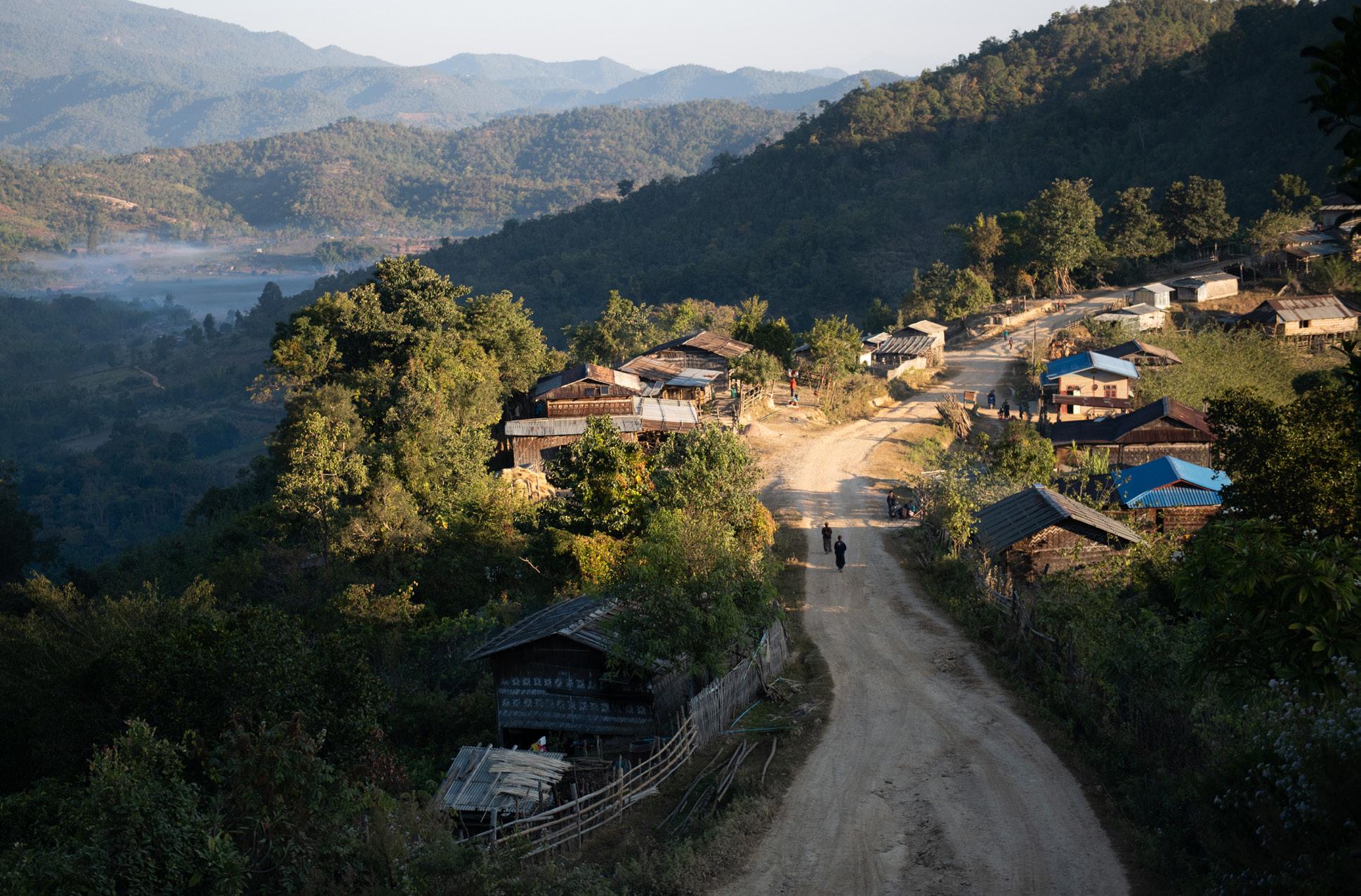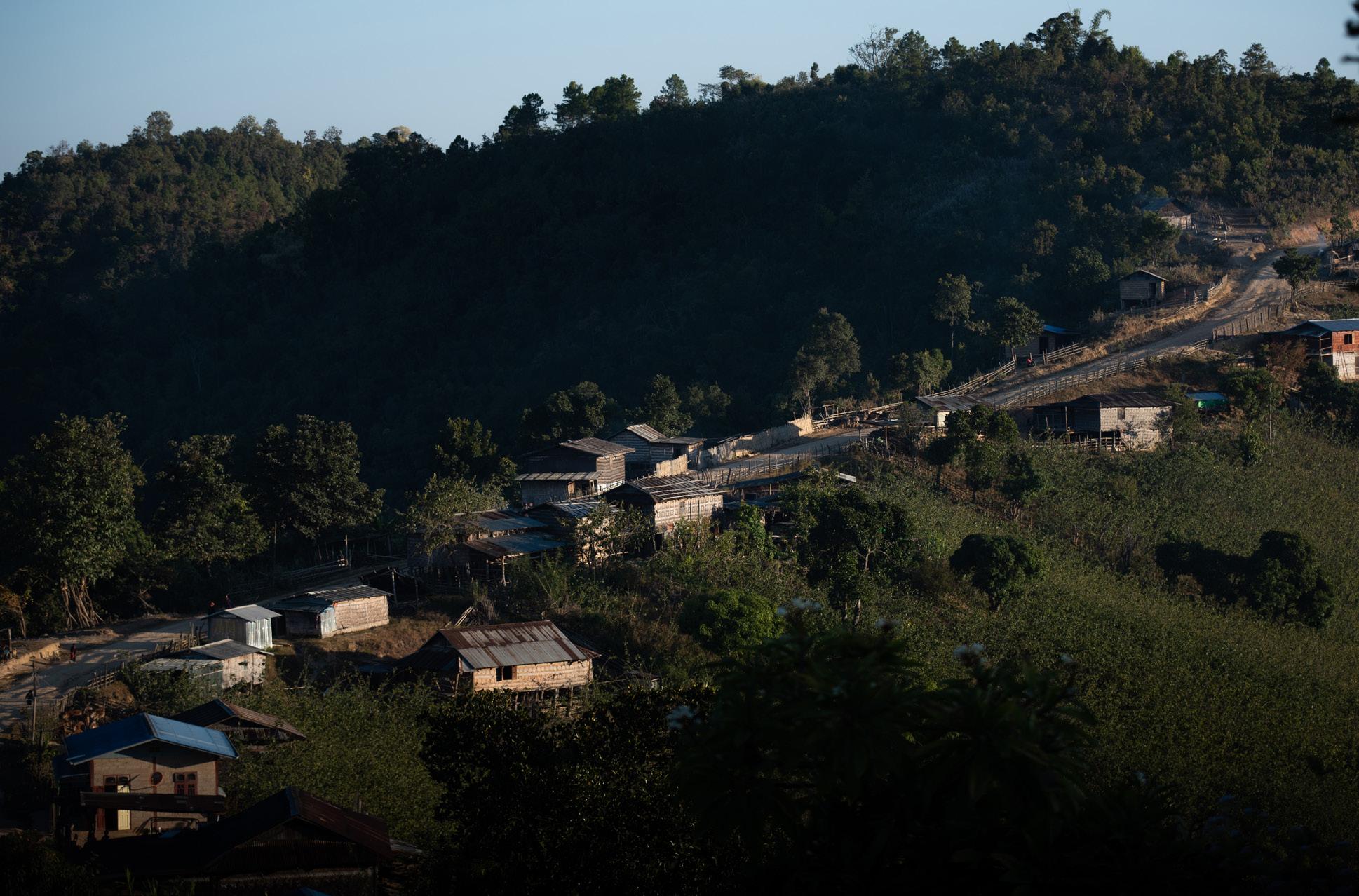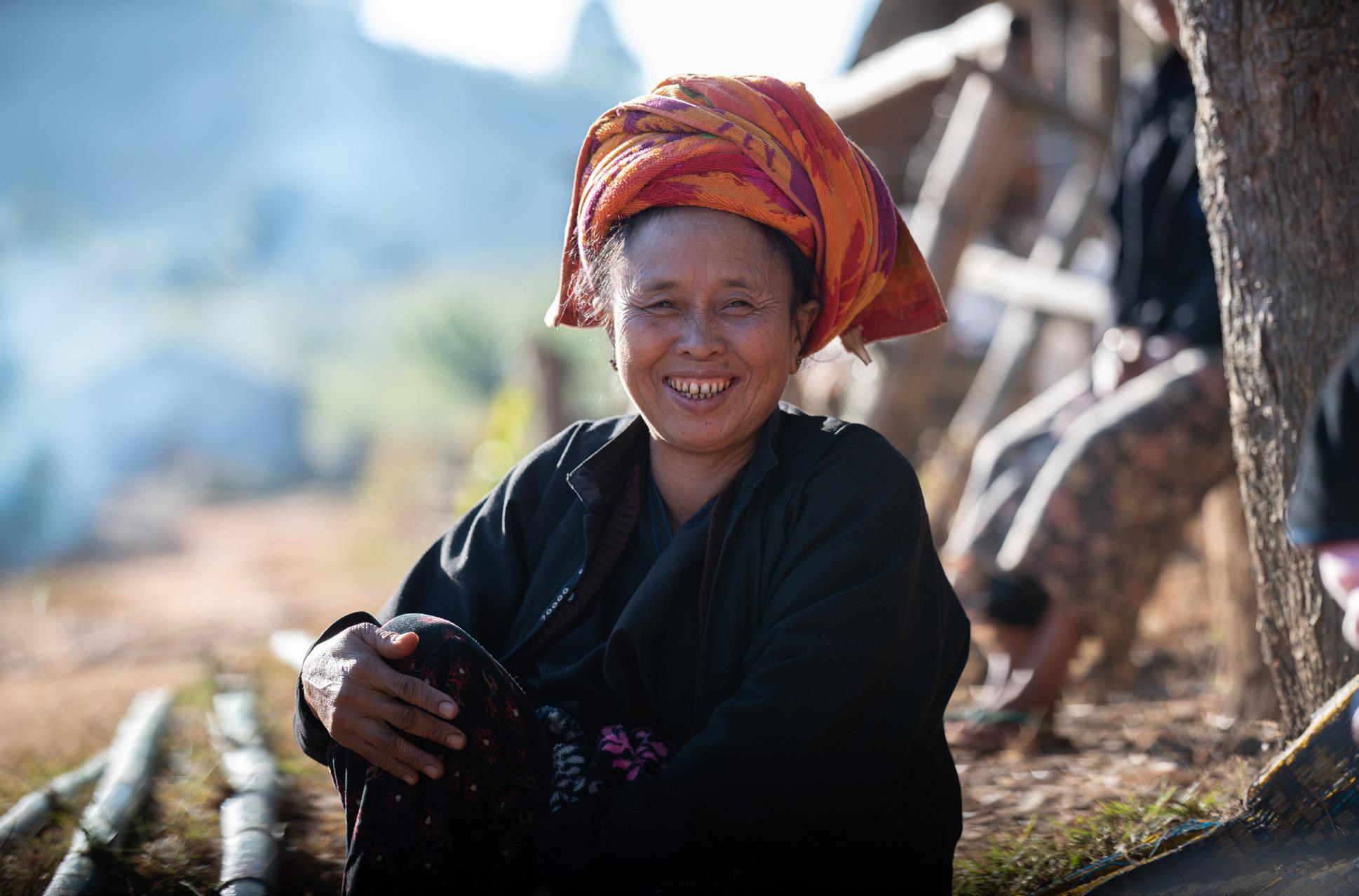
2 minute read
6. More Opportunities for Women are being created, but Change is Gradual

Yoke Village, Hopong Township, December 2019
Nang Wah Wah Ti is a Pa-O woman who works as Project Coordinator for Metta Development Foundation in the Taunggyi branch. She mentioned that Pa-O women’s roles in the community are starting to change. For example, farming provides people with their main livelihood in the Pa-O region and historically brokers for selling and trading agricultural products were solely men. Now, some women are working as brokers, mainly to trade seasonal crops. In the past, only men produced bamboo handicrafts for additional income. Currently, women are also making and selling bamboo handicrafts such as baskets and mats. The education sector is also changing, as more Pa-O women are now working as teachers, instead of teachers of other ethnicities coming from other regions.
Women’s participation in village affairs, specifically participating in village meetings, has also started to change. However, women living in remote villages still cannot attend meetings. So this change is happening gradually.
Some men respect women taking on leadership roles, but the older generation of men do not. According to Nang Wah Wah Ti, in order for real change to happen, older men’s support is needed for women’s participation.
Women’s level of knowledge regarding business is a barrier, which affects women’s ability to lead business operations. If women want to work and lead in the business sector, then they must enhance their knowledge. Also, within their individual households, some women lack the confidence to make decisions regarding income and expenses.
Pa-O tradition is another barrier to women’s full economic and political participation. For example, Nang Wah Wah Ti stated “Even though men know women are capable, they don’t want to give them roles and places. Some even mentioned that the crow of a hen doesn’t count as the beginning of a day.”
Also, women discriminate against other women who take on leadership roles. This also affects women’s ability and level of participation in village affairs. Nang Wah Wah Ti pointed out that “Women do not like other women leading because they are not impressed with each other. That is one of the obstacles for women leading.”
There is gender-based violence in the community. Nang Wah Wah Ti mentioned that women should learn about laws regarding gender-based violence in order to understand their rights. Also, women should learn strategies to eliminate violence against other women. Therefore, training is needed to understand these concepts, so that women can resolve such conflicts in their community.
To address challenges facing women, CSOs provide capacity building trainings specifically for women. The objectives of these events are to create awareness about women’s rights, and to expand women’s knowledge about current affairs. These trainings also encourage women to participate in village administration committees and aim to build women’s confidence.
From Nang War Thi’s perspective, change must occur at the community level, but also at higher levels of governance. It is positive that the Pa-O National Organization (PNO) is now training women as teachers. She noted that the Hluttaw (parliament) needs to create opportunities for women as well.
“I see that men have begun to trust women in the agricultural sector, in household matters, and leading the community as well. Women are given roles and places, and opportunities for women are being created.”

Yoke Village, Hopong Township, December 2019

Pa-O women from Yoke village, Hopone township, December 2019










